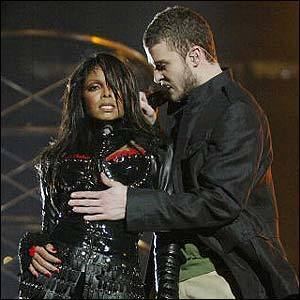A federal appeals court has ruled that the FCC acted improperly when it imposed a half-million dollar fine on CBS for broadcasting an image of Janet Jackson's exposed nipple for a fraction of a second during the 2004 Super Bowl. The court ruled that the broadcast was legal under the FCC's then-current policy of allowing "fleeting" indecency on the airwaves, and that it was unfair of the FCC to change the policy retroactively.
Wednesday's ruling is the second time the United States Court of Appeals for the Third Circuit has sided with CBS on the issue. It reached the same conclusion in a 2008 ruling. But the Supreme Court asked the Third Circuit to reconsider after ruling that the FCC could punish Fox for "fleeting expletives" uttered by Cher and Nicole Richie during broadcasts in 2002 and 2003.

"We conclude that, if anything, the Supreme Court's decision fortifies our original opinion," wrote a two-judge majority on Wednesday. In the Fox case, the FCC had notified broadcasters of a change in policy related to "fleeting expletives," and the argument focused on whether the FCC had adequately justified the change. In contrast, the FCC had not notified CBS of a policy change before smacking the network with a $550,000 fine for the nipplegate incident.
Judge Scirica, the author of the court's original opinion, dissented from Wednesday's ruling. He argued that the Supreme Court's Fox decision meant that "the safe harbor for fleeting nonliteral expletives was an isolated exception rather than an instance of a more general rule." Hence, he said, punishing CBS for nipplegate was consistent with the policies the FCC had in place at the time.
By itself, the ruling isn't going to lead to Girls Gone Wild broadcasts in prime time. The decision focuses on the due process rights of broadcasters, and doesn't place any substantive limits on broadcast indecency rules. Now that the FCC has clearly announced its zero-tolerance stance toward boobs on the boob tube, Wednesday's ruling won't prevent the FCC from punishing future wardrobe malfunctions.
But Adam Thierer, a researcher at the Mercatus Center at George Mason University, sees the ruling as part of a broader trend of judicial skepticism of broadcast indecency regulation. "The courts continue to whittle away at the FCC's powers to censor broadcasting," he told Ars. "Kids are already using new media platforms more than broadcast TV, so the only thing continued FCC regulation does is protect adults from themselves."
reader comments
71